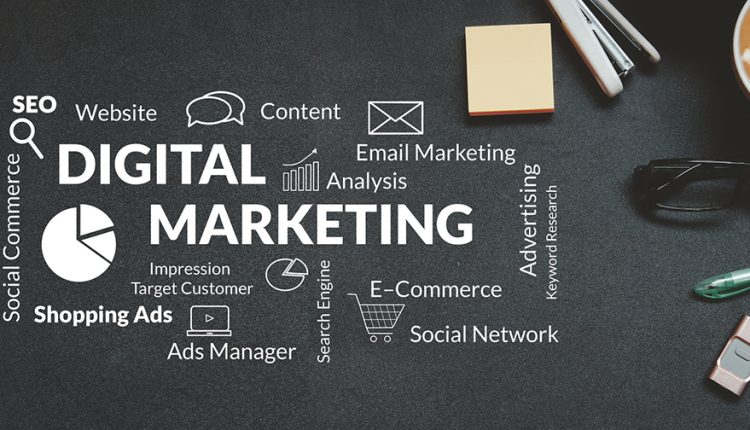
Types Of Digital Marketing
digital marketing is essential for businesses looking to grow and connect with their audience. With multiple techniques available, understanding different types of digital marketing helps choose the best strategies. Each method serves a unique purpose and contributes to overall success. A balanced approach ensures consistent engagement and brand visibility. Let’s explore various digital marketing types and their benefits.
1. Search Engine Optimization (SEO)
Search Engine Optimization improves website ranking on search engine results pages (SERPs). Higher rankings lead to increased website traffic and brand visibility. Search Engine Optimization includes optimizing content, improving website structure, and gaining backlinks.
On-page SEO focuses on elements like keywords and meta tags, while off-page SEO builds credibility through external links. Technical SEO enhances website performance, ensuring a smooth experience for users and search engines.
2. Pay-Per-Click Advertising (PPC)
Pay-per-click advertising enables businesses to reach targeted audiences quickly. Advertisers pay only when users click their ads, making it cost-effective. PPC platforms like Google Ads and Facebook Ads offer detailed targeting options.
Retargeting ads help reconnect with visitors who previously engaged with a brand. A well-optimized PPC campaign increases conversions, boosts brand awareness, and provides measurable results.
3. Content Marketing
Content marketing focuses on creating valuable information that attracts and retains customers. It includes blog posts, videos, infographics, and ebooks. Quality content builds trust, answers questions, and guides customers through their journey.
Regular content updates keep audiences engaged and improve search rankings. A Quality content strategy boosts brand reputation and builds long-term relationships with customers.
4. Social Media Marketing
Social media marketing helps businesses connect with audiences on platforms like Facebook, Instagram, and LinkedIn. Sharing engaging posts, videos, and stories builds brand awareness. Paid promotions expand reach and generate leads.
Social media also enables direct interaction with customers through comments and messages. Consistent engagement strengthens relationships, encourages loyalty, and increases brand credibility.
5. Email Marketing
Email marketing remains a powerful tool for customer communication. Personalized emails keep customers informed about offers, updates, and valuable insights. Automated email sequences improve user experience by sending timely responses.
Segmentation improves open rates by sending relevant content to specific audiences. A well-planned email strategy nurtures leads, retains customers, and increases conversions effectively.
6. Affiliate Marketing
Affiliate marketing allows businesses to expand their reach through partnerships with influencers and bloggers. Affiliates promote products using unique links, earning commissions on sales. This model benefits both businesses and marketers by increasing traffic and revenue.
Choosing credible affiliates enhances brand reputation and customer trust. A structured affiliate program leads to increased engagement and long-term business growth.
7. Influencer Marketing
Influencer marketing utilizes individuals with large online followings to promote brands. Micro-influencers have niche audiences, while macro-influencers reach a wider audience. Sponsored posts and brand collaborations increase awareness and credibility.
Selecting the right influencers aligns brand values with audience interests. Influencer partnerships build authentic engagement and effectively impact purchase decisions.
8. Video Marketing
Video marketing captures attention and delivers messages effectively. Platforms like YouTube, Instagram Reels, and TikTok offer opportunities to engage audiences visually. Short-form videos generate quick engagement, while long-form content educates and informs.
Live streaming allows real-time interaction with viewers. Quality video strategy increases brand reach and enhances storytelling impact.
9. Mobile Marketing
Mobile marketing connects with audiences through smartphones and tablets. SMS campaigns deliver instant updates and promotions. Mobile apps provide personalized experiences and push notifications. Location-based marketing targets users based on their real-time location.
Optimizing websites for mobile enhances usability and engagement. A mobile-first approach ensures accessibility and improves customer interaction.
10. Online PR and Reputation Management
Online PR improves brand credibility through media attention and public relations efforts. Press releases share company news with wider audiences. Monitoring online reviews helps businesses manage their reputation effectively. Addressing customer feedback builds trust and loyalty. A well-managed online reputation enhances brand perception and supports long-term success.
Conclusion
Digital marketing offers businesses multiple ways to connect with audiences and grow. Each strategy enhances the others, leading to an effective online presence. Businesses must adapt to changing trends and consumer behaviours for continued success. A well-planned digital marketing approach leads to increased engagement and brand loyalty. Choosing the right mix of strategies ensures sustainable growth and long-term business success.
FAQs
1. How does SEO benefit businesses?
SEO improve website rankings on search engines, attracting organic traffic and increasing visibility over time.
2. Why is PPC a popular choice for businesses?
PPC enables targeted audience reach and provides immediate, measurable results through cost-per-click ads.
3. How does content marketing help in customer retention?
Content marketing builds trust by regularly sharing valuable and relevant information to engage customers.
4. What role does social media play in brand success?
Social media enables direct communication, builds relationships with customers, and enhances brand credibility.
5. Why should businesses invest in email marketing?
Email marketing sends personalized, timely messages that increase customer engagement, retention, and conversions.